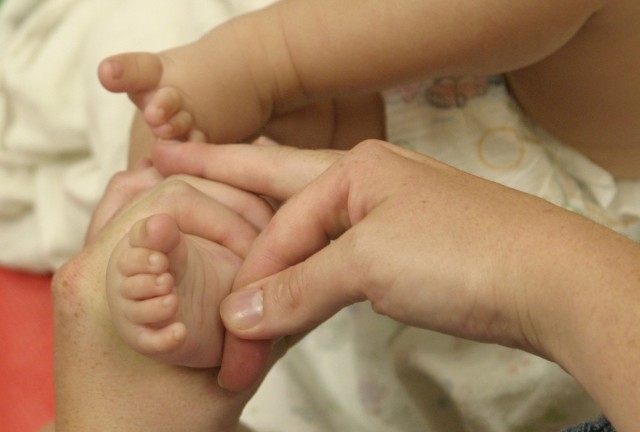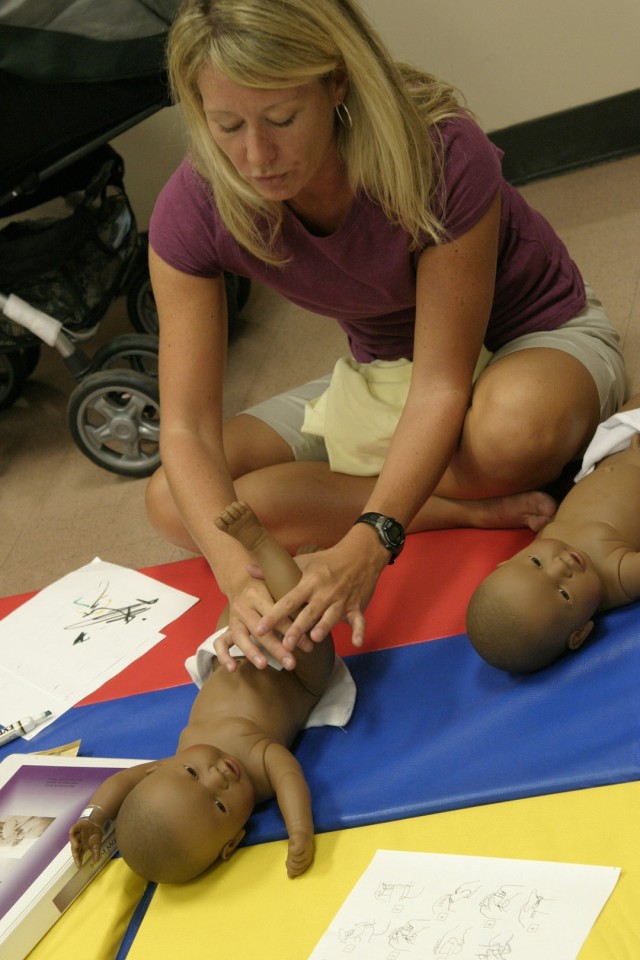SCHOFIELD BARRACKS, Hawaii - Babies are intuitive. They have a highly developed sense of touch and can often communicate their needs to parents without words.
Eight moms listened carefully to the coos and giggles of their babies as they prepared to administer a massage at the Sgt. Yano Library here, during Army Community Service's (ACS) baby massage course.
"Your (babies) will tell you what they like," explained Heather Keeler, home visitor, New Parent Support Program (NPSP). "Communicate with one another."
Mothers began by rubbing oil on their hands and waving it in front of each child. Making eye contact, babies pulled their hands closer, indicating they were ready for their massage.
Most babies smiled and cooed as their mothers began the massage, while a few slowly pushed their mother's hands away, indicating their displeasure.
"They will let you know their threshold," said Keeler, a certified infant massage instructor.
She explained that hiccups and sneezing, along with normal fussing, are indications that a baby is over-stimulated. If coos and contentment continue, so should the massage, she explained.
Infant massage has many benefits for both mom and baby. It incorporates all the elements of parent-child bonding; it stimulates the little ones' senses through skin and eye contact and familiar smell. As well, hearing the parent's voice and experiencing a focused response stimulates the little ones.
The sensory experience of massage has proven to stimulate growth and enhance neurological development, Keeler said. As parents massage their child, they stimulate the development of connections between nerve cells in the baby's brain, which will form a foundation for thinking, feeling and learning, she said. Massage can also help a fussy baby sleep better and can reduce illness, including colic.
Infant massage is also a wonderful way for dads to bond with breast-fed babies and for all parents to facilitate a deeper bond with their babies.
"Time spent massaging (your) baby greatly increases your communication," said Keeler. "It helps you understand your baby's moods, needs, desires and expressions."
Moms attending the NPSP class rubbed their baby's legs, feet, chest, arms, head and back, focusing on each body part individually.
"This is great bonding time between he and I," Raquel Limtiaco said of her 4-month-old son, Paul. "With three kids at home, it's good for both of us to have this alone time together."
Baby massage is part of the infant care series provided by ACS. The class is open for parents and their babies ages 3 to 8 months. A new class is offered once a month and runs for four sessions.








Social Sharing